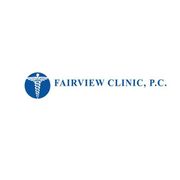
One of the most common diseases in older adults is osteoporosis. This condition causes the bones to weaken with time, leaving affected people with a higher risk of fractures, weakness, discomfort, and mobility issues. While it primarily affects women, all adults should understand it so that they can take preventive measures. If you have questions about this condition, below are answers to several of the most common
What You Should Know About Osteoporosis
What is it?
Osteoporosis occurs due to bone loss, the body’s inability to produce enough bone, or a combination of both factors. These situations cause the bones to become weak and brittle, increasing the chance of breakage. Doctors often refer to this as a silent disease because it rarely produces symptoms during the earliest stages. People usually only notice after it progresses because they may develop a bent posture, lose height, and experience back pain due to weakened and possibly fractured bones.
What are the risk factors?
While most individuals affected are women, other key risk factors include age, family history, and the size of the body’s frame. Smaller frames have a higher risk because their bone mass is naturally lower than those with larger frames. Some lifestyle choices can also affect your likelihood of osteoporosis, such as if you consume low amounts of calcium. Additionally, people who have gastrointestinal surgery are also at risk, as reducing the stomach's size makes it difficult to absorb important nutrients properly, such as calcium.
How can I prevent it?

Proper bone support is the most effective way to avoid this disease. For example, adult men and women should consume at least 1,000 milligrams of calcium daily. By age 50, women should increase this to 1,200 mg. Men should follow suit when they turn 70. You can also increase your consumption of calcium-rich foods, such as leafy vegetables, fortified cereals, and low-fat dairy products.
How do doctors treat osteoporosis?
Your doctor will begin by performing a bone density test to determine the ratio of minerals within your bones. This pain-free, non-invasive test involves running a scanner over the body. If the doctor deems you're at risk of fractured bones, they may prescribe medication designed to fortify and strengthen the bones. Since smoking and alcohol consumption can increase your risk of osteoporsis, it may also be helpful to discontinue use during treatment.
If you’re concerned about osteoporosis, contact the experienced team at Fairview Clinic in Dothan, AL. Led by experienced physicians, this medical facility is committed to providing the best possible solutions for your needs. They will start with a bone density scan to determine your health before devising a customized treatment plan. Visit the website for more information about their services, and call (334) 794-3192 to schedule an appointment.
About the Business
Have a question? Ask the experts!
Send your question

